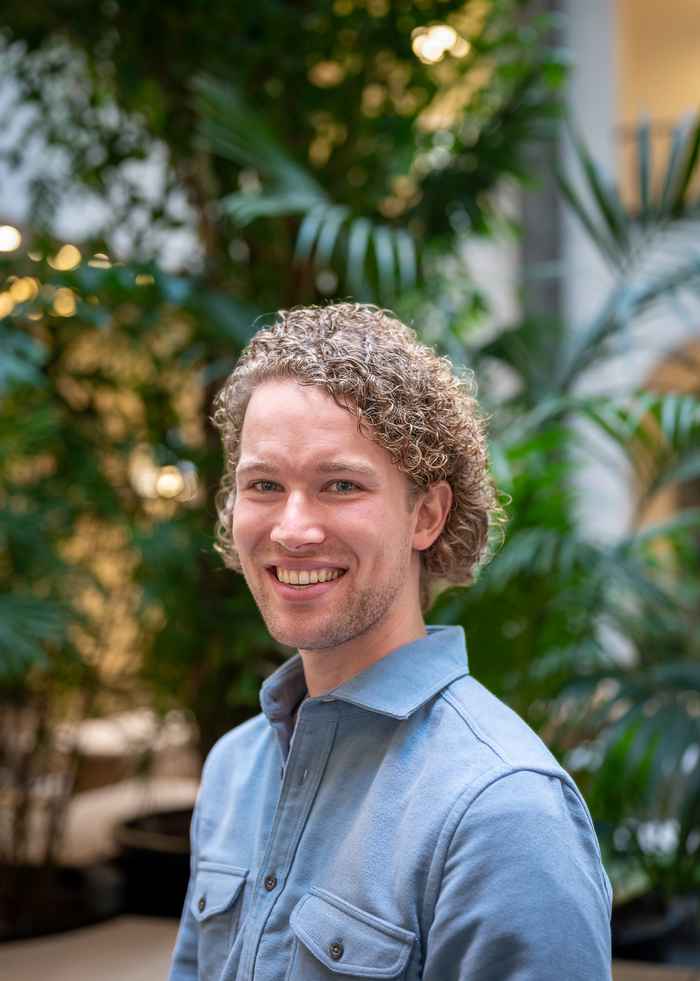Lowering the burden of disease and mortality rate in Nigeria through better recognition and treatment of melioidosis
Winner UvA thesis prize
17 August 2023

Melioidosis is caused by a bacterium: Burkholderia pseudomallei. As Savelkoel explains, people become infected from contaminated soil or water. ‘We think it primarily enters the body through skin wounds, or from inhaling or swallowing the bacterium. People who are infected develop abscesses or disease symptoms resembling sepsis, tuberculosis or pneumonia. The problem is that the disease of melioidosis is not well known among the Nigerian population or healthcare professionals. This means patients are unlikely to receive the correct treatment, so they die unnecessarily or are left with lingering issues due to the disease. Melioidosis can only be treated effectively with a special long-term course of antibiotics.’
Melioidosis not recognised by the WHO
Because local care providers do not always recognise melioidosis, death from melioidosis is under-reported. In 2022, Savelkoel won the UvA thesis prize with an article in which he explained why melioidosis should be recognised by the World Health Organisation (WHO) as a neglected tropical disease. With the research he is now doing as a PhD candidate at the Amsterdam UMC Center for Experimental and Molecular Medicine, Jelmer is continuing his battle to get melioidosis recognised.
Initial soil survey
While studying medicine, he helped Dr Emma Birnie (who, along with Professor Joost Wiersinga, is now supervising his doctoral research) map the global burden of disease of melioidosis. Nigeria was one of the five countries with the highest estimated ‘melioidosis burden of disease’. ‘To tackle the disease in Nigeria, we started by looking for Burkholderia pseudomallei bacteria in soil samples’, Jelmer explains. One of the first projects for his PhD research was analysing soil samples Birnie had collected in Nigeria. ‘Our analysis shows that the bacteria is present in the soil in several regions in Nigeria. With our research project ‘In search of melioidosis in Nigeria’, we want to investigate how many people have come in contact with the bacteria and how many people have contracted melioidosis. We also want to make the local population and healthcare professionals more aware of the disease.’
Blood and microbiological analysis
In the south-eastern regions of Nigeria, where the bacteria was found most frequently in the soil, Savelkoel will conduct two types of analysis in conjunction with local healthcare professionals. In the region with the highest levels of melioidosis in the soil, 500 blood samples have been collected for the project, which Jelmer will analyse in Nigeria this autumn. ‘We want to see whether those samples contain antibodies. That will tell us whether people have come in contact with the bacteria. We’re also going to do microbiological analysis in two hospitals. In each hospital, we’ll do additional testing on all cultures of suspected melioidosis over a twelve-month period. We’ll then run PCR tests, which will tell us with a hundred percent certainty whether the bacteria and thus the disease is melioidosis. We also want to investigate which bacterial strain is involved in each case. There are several different strains of the bacteria, and each has a different disease profile. Where patients appear to have melioidosis, we will describe their symptoms.’

‘I think it’s unjust that these kinds of serious diseases affect the people in the world who already have the least’Jelmer Savelkoel
Proving melioidosis infections in Nigeria
By showing how many people in Nigeria are contracting melioidosis and in what forms, Savelkoel hopes to contribute to mapping the locations in the world where melioidosis is currently found. He hopes that will lead to recognition of the disease by the WHO. ‘If melioidosis is recognised, the WHO will make a policy to fight the disease, and pharmaceutical companies might donate medicines and develop vaccines. Vulnerable people – those with lung problems or diabetes, for example – who are at greater risk, could then be vaccinated. It’s important for a large organisation such as the WHO to launch an awareness-raising campaign in the tropics. That could prevent a great many infections. For example, it would help if people wear shoes and gloves, cover open wounds and drink clean water.’
African Melioidosis Workshop
Savelkoel is delighted with the close collaboration with Nigerian doctors and healthcare professionals. ‘It’s enabling us to teach them how to recognise melioidosis in cultures and how to treat it correctly. Through this collaboration, we’re making a long-term contribution to reducing mortality and the burden of disease from melioidosis.’ To transfer and embed the knowledge acquired from his research in Nigeria, Jelmer wants to run the African Melioidosis Workshop for a second time in Lagos (Nigeria), in conjunction with the WHO, local partners and Dr Birnie. ‘We’ll invite Nigerian healthcare professionals, as well as representatives from public healthcare and government institutions in various African countries. We want to train them to recognise and treat melioidosis and help create a knowledge network. To fight the disease over the long term, ongoing laboratory testing will have to be carried out.’
Soil analysis in Suriname
Jelmer’s major motivation is fighting injustice. ‘I think it’s unjust that these kinds of serious diseases affect the people in the world who already have the least. That’s why I’m pushing to get melioidosis recognised by the WHO as a neglected tropical disease.’ This summer, as part of his doctoral research, he’s heading to Suriname to collect and analyse soil samples to prove that melioidosis is present there too.
Spinoza Fund
With contributions from the Spinoza Fund, the Amsterdam University Fund supports medical research, helps purchase medical equipment and provides travel grants to medical students. Every year, talented UvA researchers can apply for a project grant. This gives them an opportunity to start their research and develop their academic career.